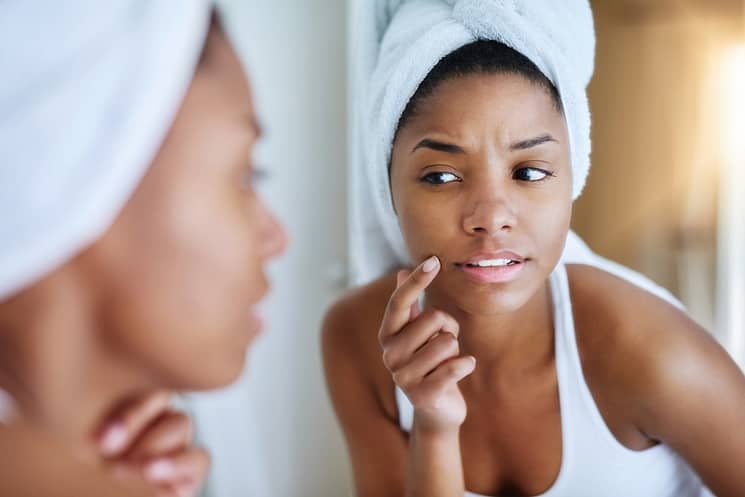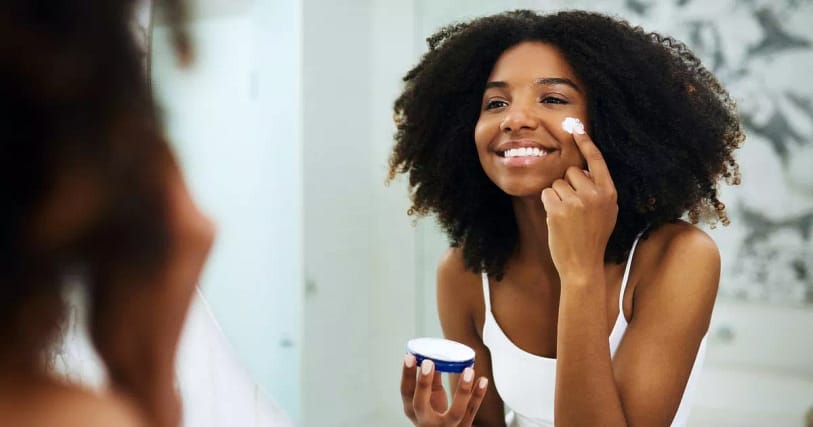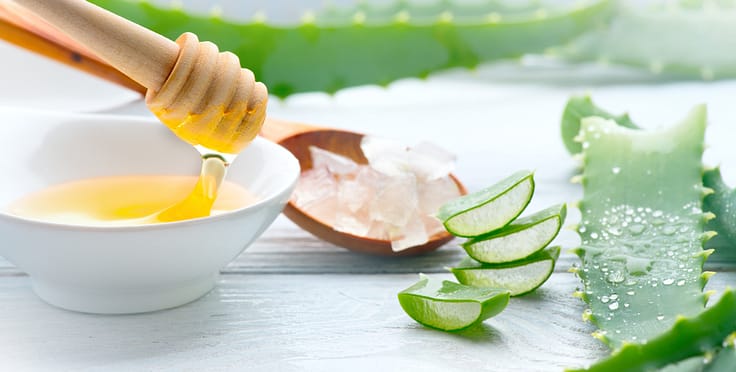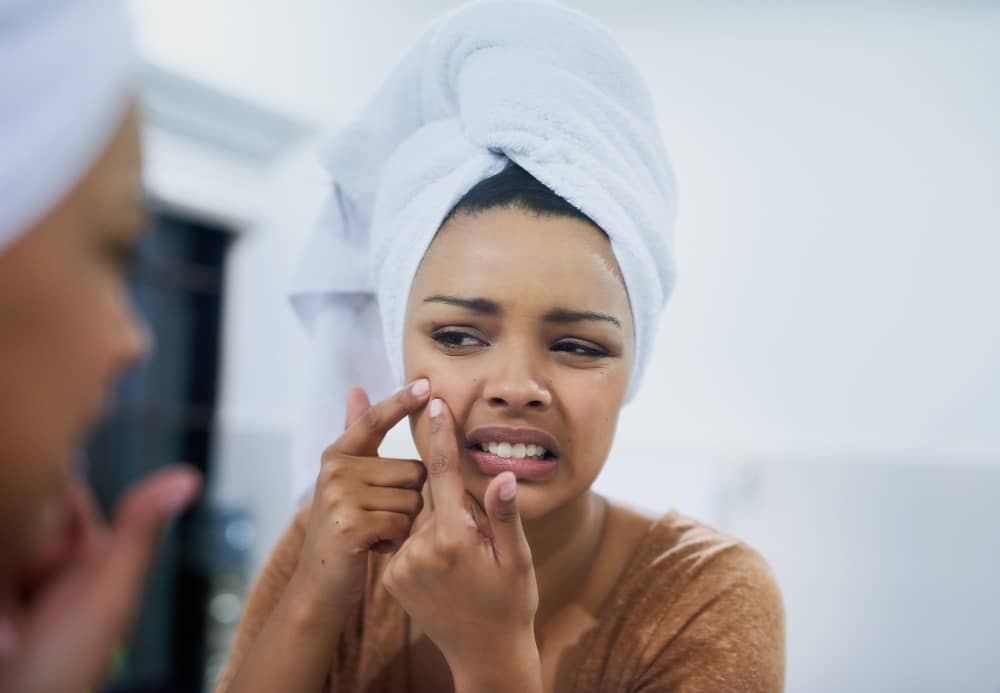What Is Adult Acne And How Can You Manage It?
Discover effective strategies for managing adult acne, a common skin condition affecting millions. Learn about its causes, prevention methods, and treatment options, including both over-the-counter and prescription solutions.
Understanding Adult Acne: Causes, Prevention, and Management
Acne is one of the most prevalent skin conditions, affecting approximately 9.4% of the global population. Despite its commonality, many myths and misconceptions persist about its causes and treatment, especially when it comes to adult acne. This type of acne can be particularly distressing, as it often appears later in life when individuals expect to have outgrown their teenage skin issues. Fortunately, adult acne is manageable, and with the right knowledge and care, you can effectively mitigate its effects.
Today, Bold Daughters helps you understand acne and the steps you can take to manage it effectively.
What is Adult Acne?
Adult acne occurs when hair follicles become clogged with oil, dead skin cells, and sometimes bacteria. The types of blemishes associated with adult acne can vary widely, including:
- Blackheads: Open pores filled with oil and dead skin cells, appearing as small dark spots.
- Whiteheads: Closed, raised bumps that form under the skin.
- Pustules: Red, inflamed pimples with pus at their tips.
- Nodules: Hard, painful lumps that develop beneath the skin’s surface.
- Cysts: Large, pus-filled lumps that can be tender and painful.
- Papules: Small, red, raised bumps that can be sensitive to touch.

Understanding these different types of acne can help you identify what you’re experiencing and discuss it with a dermatologist or healthcare provider.
What Causes Adult Acne?
According to Dr. Venkatesh Narasimhan, a dermatologist at Aga Khan University Hospital in Nairobi, hormonal fluctuations are a significant factor contributing to adult acne, especially in individuals over 25. Here are some common causes:
-
Hormonal Changes: Fluctuations in hormone levels, such as those associated with menstruation, menopause, or hormonal birth control, can lead to increased oil production and acne breakouts.
-
Stress: High-stress levels can trigger hormonal changes, leading to increased oil production and inflammation, exacerbating acne.
-
Polycystic Ovary Syndrome (PCOS): This hormonal disorder can cause irregular menstrual cycles and increased levels of androgens, leading to acne.
-
Medications: Certain medications, such as corticosteroids or some antidepressants, can cause acne as a side effect.
-
Excess Oil Production: Overactive sebaceous glands can produce more oil than necessary, contributing to clogged pores.
-
Dead Skin Cells: When dead skin cells accumulate on the skin’s surface and in pores, they can lead to breakouts.
-
Bacteria Growth: The presence of bacteria, especially Propionibacterium acnes, can lead to inflammation and infection within clogged pores.
Preventing acne
While it’s not always possible to prevent acne, there are several proactive measures you can take to reduce the frequency and severity of breakouts:
-
Cleanse Regularly: Wash your face twice a day with a gentle, oil-free cleanser to remove excess oil and dead skin cells. Avoid harsh scrubs, which can irritate the skin.
-
Remove Makeup: Always remove makeup before bed to prevent clogged pores.
-
Balanced Diet: A diet rich in whole foods and low in processed carbohydrates may help reduce acne flare-ups. Foods with a high glycemic index, like white bread and sugary snacks, can worsen acne.
-
Exercise: Regular physical activity improves blood circulation and helps regulate hormones, which can benefit your skin.
-
Stress Management: Engage in stress-reducing activities such as yoga, meditation, or hobbies that you enjoy, as stress can worsen acne.
-
Choose the Right Products: Opt for non-comedogenic (non-pore-clogging) and oil-free makeup and skincare products

Managing acne
If you’re already experiencing adult acne, there are several effective management strategies you can consider:
1. Over-the-Counter Treatments
Many effective acne treatments are available without a prescription. Look for products that contain:
-
Benzoyl Peroxide: This ingredient helps kill acne-causing bacteria, reduce inflammation, and prevent new breakouts. It can be found in various forms, such as gels, creams, and cleansers.
-
Salicylic Acid: This beta hydroxy acid (BHA) exfoliates the skin, helping to clear clogged pores and reduce inflammation.
Both of these ingredients can be found in many over-the-counter acne treatments, and they can be quite effective for mild to moderate cases of adult acne.
2. Prescription Treatments
For more severe cases, a dermatologist may recommend prescription treatments, including:
-
Antibiotics: Oral or topical antibiotics like erythromycin or clindamycin can help reduce inflammation and bacteria on the skin.
-
Retinoids: Topical retinoids, such as tretinoin, are derived from vitamin A and help to increase cell turnover, preventing clogged pores and promoting smoother skin.

Dr. Adam Friedmann from the Harley Street Dermatology Clinic notes that a consistent retinoid regimen over five to six months can lead to significant and lasting improvements in acne.
3. Natural Remedies
Some individuals may prefer natural remedies to manage their acne. Options like tea tree oil, honey, and aloe vera have shown some effectiveness in reducing acne due to their antibacterial and anti-inflammatory properties. However, it’s essential to do a patch test first to ensure you don’t have an adverse reaction.

Source: Johns Hopkins Medicine
The Emotional Toll of Adult Acne
Dealing with adult acne can be emotionally challenging. Many individuals experience decreased self-esteem and confidence, leading to anxiety and social withdrawal. It’s important to remember that you are not alone; countless others face similar struggles. Seeking support from friends, family, or even online communities can help alleviate feelings of isolation.
Additionally, if your acne is severely impacting your mental health, consider speaking with a mental health professional who can provide strategies to cope with the emotional aspects of living with acne.
When to Seek Professional Help
If over-the-counter treatments aren’t effective, or if your acne is causing significant distress, it’s essential to consult a dermatologist. They can provide tailored recommendations based on your specific skin type and acne severity. Early intervention often leads to better outcomes and can help you achieve clearer skin more quickly.
Related: 5 Tips to Help You Invest in Your Health Better
Conclusion
Adult acne is a common but manageable skin condition. Understanding its causes, prevention strategies, and treatment options is crucial in navigating this challenging issue. With patience and the right approach, clear skin is achievable. Whether you choose over-the-counter products, prescription treatments, or natural remedies, the key is to find what works best for you and to consult with professionals when needed. Remember, taking the first step towards understanding and managing your acne can lead to significant improvements in your skin health and overall confidence.






